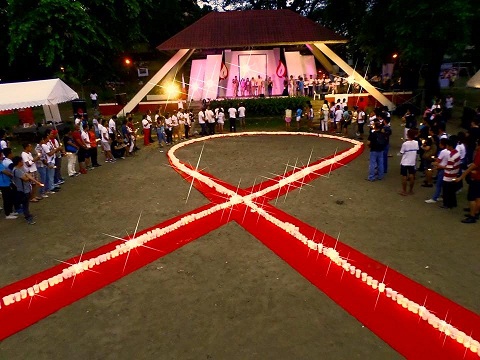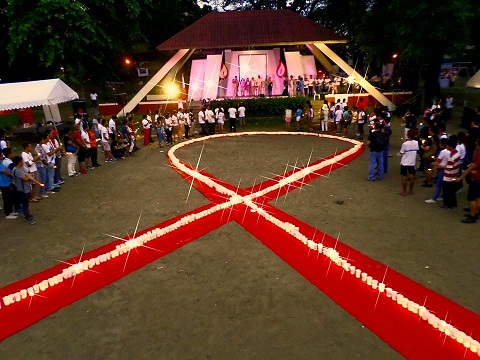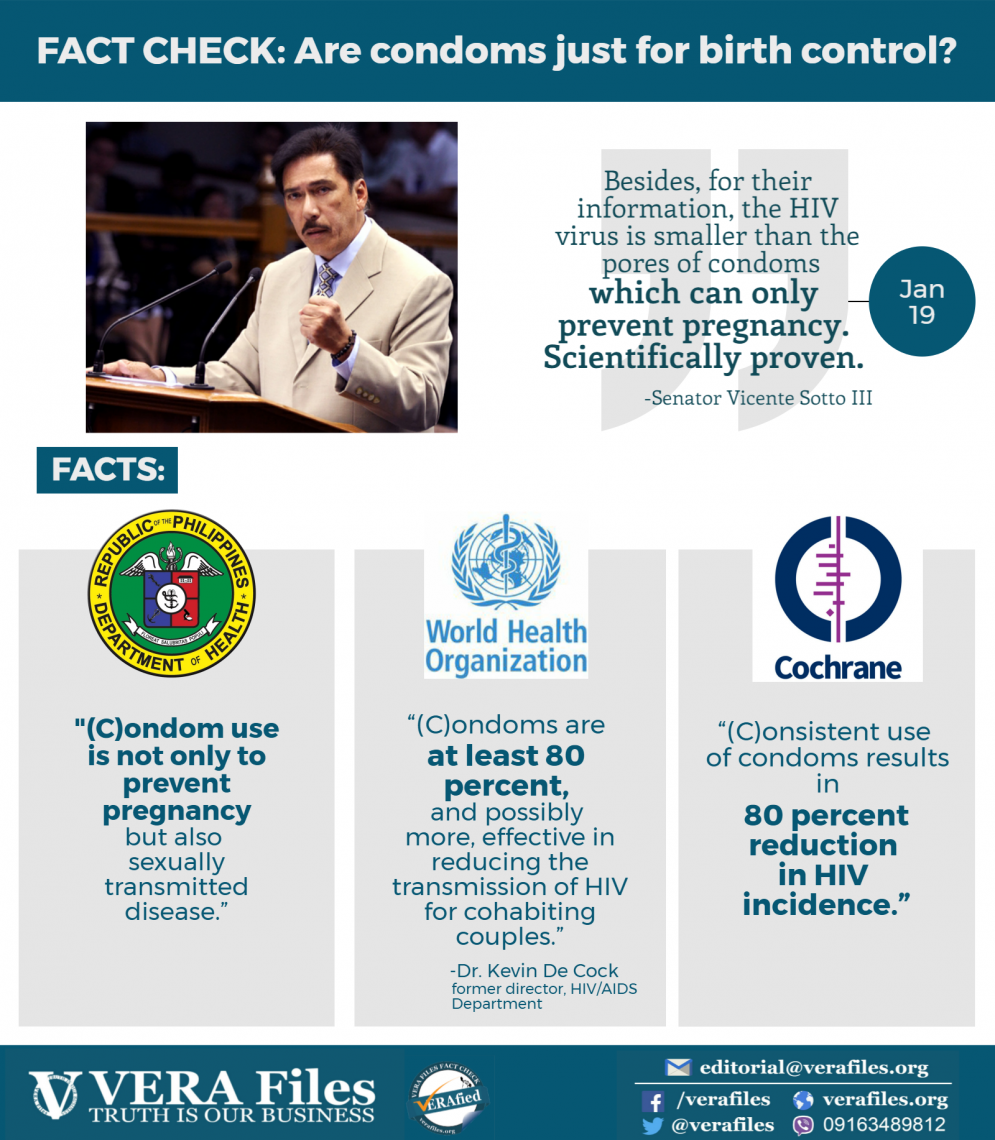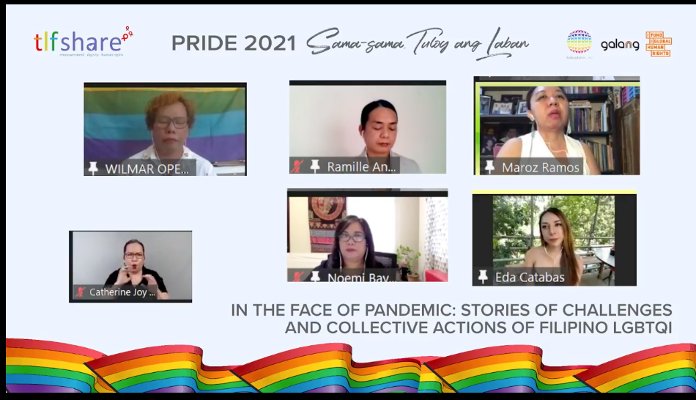By PATRICK KING PASCUAL
AS of May this year, 966 Filipinos have already died of AIDS (acquired immunodeficiency syndrome) since 1984.
To remember those who had passed on because of the AIDS pandemic, members of the people living with human immunodeficiency virus (PLHIV) community and support groups, organizations and foundations held a candlelight memorial in Quezon City last May 18.
The event, spearheaded by Project Red Ribbon and the University of the Philippines (UP) Student Council, marked the annual celebration of International AIDS Candlelight Memorial (IACM).
Through the years, different organizations have hosted IACM events to remind everyone that there is still not enough education and awareness about HIV/AIDS.
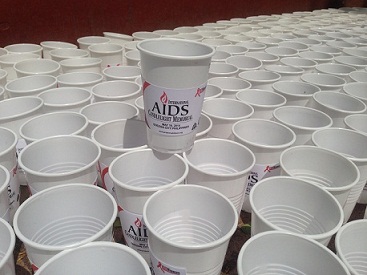 “IACM is all about honoring the people who passed on. We want to highlight their stories, learn from their experiences and at the same impart to everyone that there is still a growing need for education,” Pozzie Pinoy, founder of the Project Red Ribbon, explained. “We want to be more current, we want to be more dramatic this time — to make an impact and to make a commitment to the souls who had passed on that we can all be an instrument to make a change.”
“IACM is all about honoring the people who passed on. We want to highlight their stories, learn from their experiences and at the same impart to everyone that there is still a growing need for education,” Pozzie Pinoy, founder of the Project Red Ribbon, explained. “We want to be more current, we want to be more dramatic this time — to make an impact and to make a commitment to the souls who had passed on that we can all be an instrument to make a change.”
Project Red Ribbon is a care management program that links advocacy groups with individuals to assist them to obtain discreet HIV testing, while also conducting awareness programs, and most importantly, provide care and support for PLHIV. It is also the only organization where 99% of the managers are PHLIVs.
“The PLHIV community wants to reach out to other organizations to show them that we are here and that we need their help. And the government should continue talking to different HIV/AIDS advocacy groups so they can hear the real problems.” Pinoy stressed.
The UP Student Council, for its part, expressed its intent to make HIV awareness more apparent.
“We want to bring the issue of HIV/AIDS here in UP, because the number of cases among the youth have been increasing continuously, and we also hope that other universities will do the same. The issue of gender and health awareness is very important, and everyone should be involved in this,” Julian Tanaka, councilor of the UP Student Council, said.
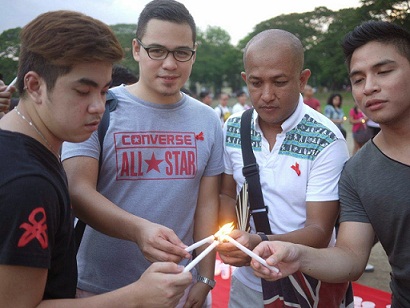 Julius Elorpe, HIV program coordinator of Pilipinas Shell Foundation, said they have several HIV programs that seek to provide correct HIV information to the business sector through HIV 101 lectures. Elorpe described the programs as “the Philippine Business Sector’s response to the growing HIV/AIDS cases in the Philippines.”
Julius Elorpe, HIV program coordinator of Pilipinas Shell Foundation, said they have several HIV programs that seek to provide correct HIV information to the business sector through HIV 101 lectures. Elorpe described the programs as “the Philippine Business Sector’s response to the growing HIV/AIDS cases in the Philippines.”
“We encourage the business sectors, especially the private businesses, to have an HIV policy in the workplace… in line with RA 8504 or the HIV/AIDS law, which mandates each of the private companies to give basic information about HIV to their employees, as well as provide linkages to support HIV testing,” he said.
There is still no cure for AIDS, but over the years, the status of PLHIVs has improved because of ARVs (antiretroviral medicines) used in the treatment of HIV infection.
It has been reported that the Department of Health (DOH) has been experiencing a “delay in deliveries” of ARVs but it has kept mum on the issue to avoid unnecessary panic among the PLHIV community. Instead, the DOH has been focusing on other issues like the proposed mandatory HIV testing of those who are at risk of the disease.
“We feel that they [in the DOH] don’t listen to us. We feel that with the shortage of ARVs – they are not doing anything… and because of the delay, some PLHIVs are switching their ARVs from one to another, which is so hurtful to one’s health,” Pinoy said.
“We want transparency and open communication from our government. The PLHIV community has been panicking for the past three months now, and the DOH has not been that transparent with its programs when it comes to ARV supplies,” he added.
The Philippines is currently receiving support from the Global Fund’s Transitional Funding Mechanism to help fight HIV/AIDS, tuberculosis, and malaria.
PhilHealth, on the other hand, has come up with Outpatient HIV/AIDS Treatment (OHAT) package for persons with HIV/AIDS, which entitles them to a P30,000 insurance package every year.
